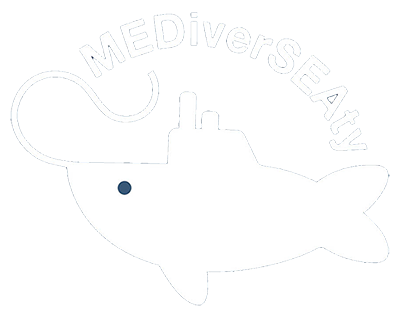The Training Group includes a member per each academic and non-academic partner and coordinates training activities and programs in close interaction with the PhD Supervisors Group to ensure the quality of individual training paths according to each candidate needs.
MEDiverSEAty training will enhance the “blue generation” skills and competences and boost its employability in relevant sectors: fisheries, maritime spatial planning, sustainable tourism, MPA management, education etc.
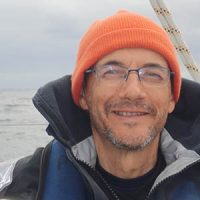
Roberto Casati
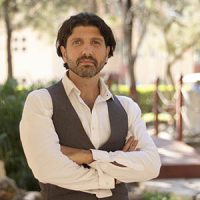
Stefano Moncada
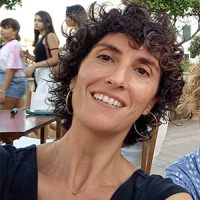
Ana Ruiz-Frau

Zdravko Ikica
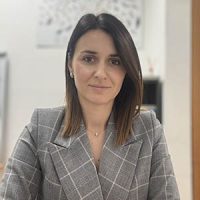
Mirjana Knezevic
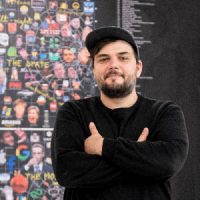
Michal Kucerak
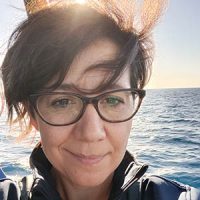
Maria Cristina Mangano
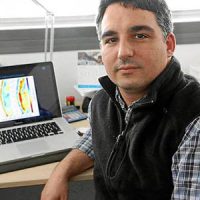
Lluís Gómez-Pujol
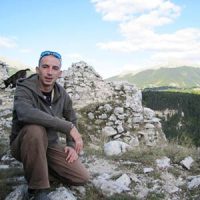
Darren Saliba
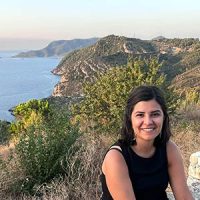
Chiara Silvestrini
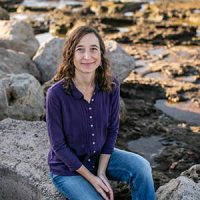
Raquel Vaquer-Sunyer
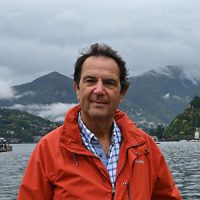
George Tsirtsis
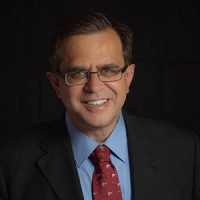
Nikolaos Zouros
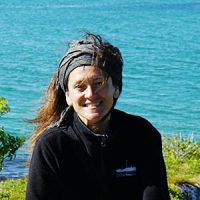
Alessandra Savini
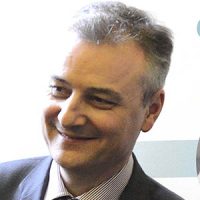
Pierre Monnet

Centre National de la Recherche Scientifique (France)
Roberto Casati
Senior Researcher of CNRS, Professor at EHESS, director of the Jean Nicod Institute of ENS/EHESS in Paris, one of the leading research centres in cognitive science, works currently on navigation and on representations of marine environments.
He is the author of 120 research papers and book chapters on perception, spatial representation and the use of maps and images, as well as of ten books, some of which have been translated in many languages. His seminal work on Digital Colonialism has spurred a large debate on the use of technology in schools. An avid sailor, his latest achievement is a transatlantic crossing on Albatros, a Challenge 67 monohull, as a crew member and on board researcher. Albatros was 2nd in the Cruising B class of the 2019 ARC, after 17 days in the trade winds. The Cognitive Life of Maps will be published by MIT Press (2024). He is the editor of the collection The Sailing Mind (Springer, 2022) and the author of La philosophie de l’océan (Presses Universitaires de France (2022).

University of Malta
Stefano Moncada
Ph.D. in Economics, Stefano lectures and conducts research in the areas of development economics, climate-change and islands and small states studies, with a focus on small island developing states. In 2022 Stefano won Malta’s Research Excellence Award focusing on small islands’ climate and health preparedness.
Stefano is the Director of the Islands and Small States Institute, Director of the WHO Collaborating Centre on Small States Health Systems and Policies, senior lecturer of the University of Malta, Coordinating Lead Author for the Mediterranean Experts on Climate and Environmental Change (MedECC), and acts as expert reviewer for the Intergovernmental Panel on Climate Change (IPCC).

Consejo Superior de Investigaciones Científicas (Spain)
Ana Ruiz-Frau
Interdisciplinary researcher specialising in the intersection of social sciences and ecology, with a focus on human-marine relationships, Ana earned her PhD from Bangor University, UK, where she explored integrating diverse values for coastal management. She has contributed to the Welsh Government’s policies, participated in several EU projects on marine ecosystem services, climate change, nature based solutions and marine spatial planning. She co-chairs international working groups within the Ecosystem Services Partnership. She is currently participating in the SMILES EU COST Action, aiming at enhancing ecosystem resilience and sustainability on islands.
Through her research on marine and coastal social-ecological systems. Ana seeks to understand societal interactions with the marine environment, she approaches this through the lenses of ecosystem service and nature contributions to people frameworks, prioritising the assessment of diverse values, perceptions, and social views. Her goal is to integrate these insights into management practices to promote sustainability.

University Crne Gore (Montenegro)
Zdravko Ikica
Zdravko Ikica is a Senior Research Assistant at the Institue of Marine Bilogy, University of Montenegro. He works in demersal fisheries and is a member of the scientific staff in Aquarium Boka, the first public aquarium in Montenegro.
He is a member of several working groups of international organisations, including the General Fisheries Commission for the Mediterranean (GFCM) and the FAO AdriaMed regional project. He is also the author and co-author of chapters international and national monographs, scientific journals, and conference proceedings. He is a member of the research team for several international projects across various programmes (Interreg, Horizon2020).

TBA21 (Spain)
Michal Kucerak
Michal Kučerák is a researcher, lecturer, and curator with a particular emphasis on art mediation and digital projects. He collaborates with a contemporary art foundation TBA21, where he contributes to their digital team, specializing in digital research and projects, specifically Ocean-Archive.org and Organismo (TBA21–Academy).
He takes part within the collective that co-organizes a festival of socially engaged design and artistic practices, Uroboros. Additionally, he is pursuing his PhD studies at the Faculty of Fine Arts, University of Technology in Brno.
Michal initiated a research exhibition project #DATAMAZE (DOX Centre for Contemporary Art, Prague, 2018-2022), which revolved around topics of digital and data literacy and was focused on educational activities and strengthening of our digital resilience. He is based in his studio at Petrohradská kolektiv in Prague (CZ).

Stazione Zoologica Anton Dohrn | Sicily Marine Centre, Palermo (Italy)
Maria Cristina Mangano
Marine ecologist strongly interested and oriented on the study of ecological responses, with the final aim to understand the effects of drivers of change – both natural and human – on the ecosystems, as for example the exploitation of marine resources (e.g. fisheries and aquaculture) specifically under a context of global change (e.g. climate change). Maria Cristina is mostly fascinated by the study of drivers driven patterns (measured at both species level – biological traits – and community level – taxonomic and functional diversity) focusing on the disentangling of mechanisms and processes of propagation along the ecological hierarchy. Her final interest is to develop sustainable solutions to inform a proactive, adaptive and dynamic management based on the Integrated Ecosystem Approach (IEA) and on scientific evidence (evidence-based management).
To inform evidence-based management and conservation measures she mostly deploys synthesis tools (e.g. systematic review) to produce knowledge baselines, crucial to build a solid, salient and rigorous dialogue among stakeholders, the so-called “science-stakeholder-policy nexus”. She believes in the importance of engaging with stakeholders on the management of marine resources (bottom-up approach) as the first step to keep it effective and to understand the socio-ecological systems (recently approached through specific data collection and analysis tools, both quantitative and qualitative). She is chair of the WGCOMEDA at ICES, PI and coPI of several national and international projects.

Universitat de les Illes Balears (Spain)
Lluís Gómez-Pujol
Coastal geomorphologist –BSc (UIB, 1998) and PhD (UIB, 2006)– with major interests in coastal biogeomorphology and ecology, and sedimentology and Quaternary studies. Lluís is currently Reader of External Geodynamics at the University of Balearic Islands. His D. Phil. Thesis focused on rocky coast ecology and the role of organisms in weathering and erosion in limestone rocky coasts. After completing his PhD he undertook post-doctoral research on beach morphodynamics and sedimentology, at the Mediterranean Institute for Advanced Studies (IMEDEA, CSIC-UIB).
From 2011 to 2017 he was the leader of the Beach Monitoring Facility at the Balearic Islands Coastal Observing and Forecasting System (SOCIB, MINECO-CAIB). Dr. Gómez-Pujol has been member of the scientific committee of the 12th and 14th International Coastal Symposium (CERF) and he was part of the Local Committee of the 2023 ASLO meeting celebrated in Mallorca (Balearic Islands, Spain); since 2014 was member he belongs to the International Advisory Editorial Board from the Earth Surface Processes and Landforms (Wiley) one of the most recognized journals in his area. Since November 2017 he is chairing the Rock Coast Working Research Group from the International Association of Geomorphologists. Since 2022 he is the PhD coordinator of the Marine Ecology Programme at the University of the Balearic Islands.

Heritage Parks Federation (Malta)
Darren Saliba
Conservation Officer of Majjistral Park and CEO of The Heritage Parks Federation. A geography graduate with interests in physical geography and geomorphology. Darren is the person in charge of the Heritage Parks Federation, an NGO whose remit is to advocate for nature conservation and the management of protected areas on the Maltese Islands. He has also been appointed to the Majjistral Park Management Board as secretary. As conservation officer Darren was in charge of several environmental restoration projects on sensitive habitats. One of the most recent projects is the restoration and rehabilitation of sand dunes (2110) through the removal of alien plant species and planting of site specific plants. Other projects done include the “MEET” project which was about sustainable tourism within the Mediterranean region and “Tourismo”, a project to valorise protected areas in relation to the flow of tourism.

WorldRise (Italy)
Chiara Silvestrini
Graduate in International relations with multiple years of experience in managing environmental and humanitarian volunteer projects in Asia and the Pacific area, wildlife protection projects in Central America and teaching projects in Africa.
Background focused on ocean governance, sustainable policies, law of the sea and political philosophy. Currently working as Operations Manager at Worldrise ETS, managing admin and finance for the organisation as well as the Posidonia Restoration project and the unique SEATY- Local Marine and Education Conservation Areas- project, with on field activities in Sardinia and Sicily.

Marilles Foundation (Spain)
Raquel Vaquer-Sunyer
PhD in Marine Sciences at the University of the Balearic Islands (UIB, Spain) in the Mediterranean Institute for Advanced Research (IMEDEA, Spain) under the supervision of Dr. Carlos Duarte. At present Raquel is coordinator for the Balearic Sea State Report at the Marilles foundation, a collaborative project aimed to provide the most updated information in order to ensure a science-based management of coastal areas that warrant its conservation. Previously postdoctoral fellow (Juan de la Cierva – Incorporación) at the Department of Global Change Research (IMEDEA, Spain) 2017-2019, postdoctoral fellow (Juan de la Cierva-Formación) at the University of the Balearic Islands (2014-2016), and researcher at Lund University (Sweden) collaborating with Dr. Daniel J. Conley (2012-2014), Raquel has been awarded numerous awards and competitive fellowships, including a Marie Curie Intra European Fellowship (IEF, 2012-2014).
She has participated in several research projects related to marine ecology and biogeochemistry and to effects of global change on the marine environment (in 3 as PI), in different coastal campaigns around the Balearic Islands and Cyprus, and in 6 international oceanographic cruises in waters of the Mediterranean Sea, the Pacific, the Arctic, and the Southern Oceans. She has published 24 papers in SCI journals and in some of the most influential journals including PNAS, Global Change Biology (GCB), Environmental Science & Technology (ES&T) or Limnology and Oceanography (L&O).

University of the Aegean (Greece)
George Tsirtsis
George Tsirtsis is a Professor in Dynamics of Marine Ecosystems at the Department of Marine Sciences, University of the Aegean. He was the Director of the Franco-Hellenic M.Sc. on Biodiversity Conservation (BIODIV) from 2007 to 2014, offered by the School of the Environment, University of the Aegean, and the Faculty of Sciences, University Montpellier 2 and Dean of the School of the Environment from 2018 to 2020.
He is teaching a number of courses at undergraduate and postgraduate levels on Coastal Ecology, Modelling and Dynamics of marine ecosystems. His research activities focus on coastal ecology and biodiversity issues and integrated coastal zone management. He has a long experience in EU and nationally funded research projects and he has published over 50 papers in peer-reviewed journals.

Natural History Museum of the Lesvos Petrified Forest (Greece)
Nikolaos Zouros
Professor at the Department of Geography at the Aegean University, Greece. Nikolaos is Director of the Natural History Museum of the Lesvos Petrified Forest. He is responsible for research activities and excavations in the Lesvos Petrified Forest protected natural monument, the works and the management of the Lesvos Island UNESCO Global Geopark since 2000. He is UNESCO Advisor on Geoparks and member of the Global Geoparks Bureau since 2005. Since 2014 he has been elected President of the Global Geoparks Network. He is author of more than 100 scientific articles in international journals and conferences proceedings and 20 books on Geoparks, Geo-conservation and Geo-tourism.

University of Milano-Bicocca (Italy)
Alessandra Savini
Alessandra Savini is Associate Professor at the University of Milano-Bicocca (Italy), where she teaches introductory courses in submarine geomorphology. She is a marine geoscientist with expertise in seafloor imaging and mapping, developing innovative methods for geo-acoustic seabed characterization and benthic habitat mapping. Her research addresses anthropogenic and climate-driven impacts on marine ecosystems, leveraging advanced techniques like Deep Learning and Object-Based Image Analysis for remote sensing data analysis.

École des hautes études en sciences sociales (France)
Pierre Monnet
French historian who specialises in the history of the late Middle Ages. He is also Director of the Doctoral School at EHESS (Ecole des hautes études en sciences sociales) since 2022.
His research focuses on the history of the Holy Roman Empire in the Middle Ages, medieval towns in the West, and historiographical and methodological transfers between France and Germany.
